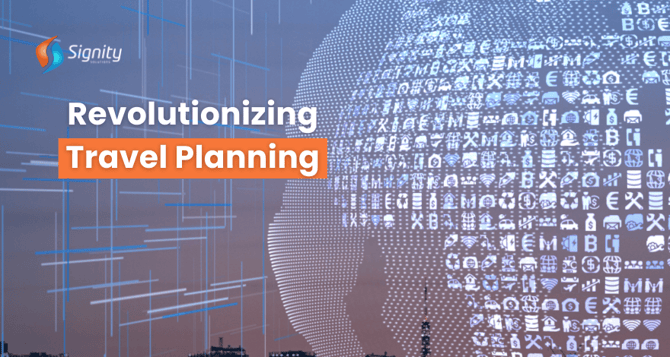Revolutionizing Travel Planning with AI-Powered Apps: A Comprehensive Guide
Explore the game-changing role of AI in travel planning apps. Discover how artificial intelligence revolutionizes trip organization, providing efficient itinerary suggestions and personalized recommendations. Elevate your travel experience with streamlined, intelligent solutions.

In today's fast-paced world, travel planning can be a daunting task, with countless options to consider and decisions to make. Fortunately, advancements in artificial intelligence (AI) have paved the way for intelligent travel planning apps that can streamline the process and offer personalized recommendations tailored to individual preferences.
In this article, we'll explore the development of an AI-powered app for travel planning, covering key features, technical implementation, and the benefits it offers to travelers.
Understanding the Benefits of AI-Powered Travel Planning Apps
AI-powered travel planning apps offer several advantages over traditional methods, including:
Personalized Recommendations
By analyzing user preferences, past travel history, and behavior, AI algorithms can generate personalized travel recommendations, including destinations, accommodations, activities, and dining options.
Real-Time Insights
AI-powered apps can provide real-time information on flight prices, hotel availability, weather conditions, and local events, enabling users to make informed decisions and optimize their travel plans.
Seamless Booking Experience
Integrating with booking platforms and travel APIs, AI-powered apps can facilitate seamless booking of flights, accommodations, rental cars, and activities, reducing friction and simplifying the booking process for travelers.
Dynamic Itinerary Planning
AI algorithms can optimize travel itineraries based on factors such as time constraints, budget, and user preferences, ensuring efficient use of time and resources during the trip.
Technical Implementation
Let's delve into the technical aspects of building an AI-powered app for travel planning:
Step 1: Data Collection and Integration
- Collect user data, including travel preferences, past trips, budget constraints, and trip duration, through user registration and profile creation.
- Integrate with travel APIs, booking platforms, and third-party services to access real-time data on flights, accommodations, activities, and local attractions.

Step 2: AI Algorithm Development
- Develop AI algorithms for personalized travel recommendations, itinerary planning, and real-time insights.
- Use machine learning techniques, such as collaborative filtering, natural language processing (NLP), and reinforcement learning, to analyze user data and generate personalized recommendations.
- Implement algorithms for dynamic itinerary planning, considering factors such as travel time, distance, opening hours, and user preferences.
Step 3: User Interface Design and Development
- Design an intuitive and user-friendly interface for the travel planning app, incorporating features for trip discovery, itinerary customization, and booking management.
- Ensure seamless integration with mapping services, travel guides, and booking platforms for a comprehensive travel planning experience.
- Optimize the app for mobile devices, tablets, and web browsers to ensure accessibility and usability across different platforms.
Step 4: Testing and Optimization
- Conduct thorough testing of the app's functionality, performance, and user experience across various devices and platforms.
- Gather feedback from beta testers and early adopters to identify any bugs, usability issues, or areas for improvement.
- Continuously optimize the app based on user feedback, performance metrics, and evolving industry trends.
Considerations for Success
To ensure the success of your AI-powered travel planning app, consider the following factors:
Data Privacy and Security:
Implement robust security measures to protect user data and comply with privacy regulations, such as GDPR and CCPA.
Accuracy and Relevance:
Ensure that AI algorithms provide accurate and relevant recommendations tailored to user preferences and travel objectives.
Seamless Integration:
Collaborate with travel industry partners to integrate with booking platforms, travel APIs, and local services for a seamless user experience.
User Engagement and Retention:
Develop features to enhance user engagement and retention, such as trip sharing, reviews, and loyalty rewards.
Conclusion
AI-powered travel planning apps have the potential to revolutionize the way people plan and experience travel, offering personalized recommendations, real-time insights, and seamless booking experiences.
 By leveraging AI algorithms for personalized travel recommendations and dynamic itinerary planning, you can create an app that empowers travelers to explore the world and make the most of their journeys. With careful planning, technical expertise, and a focus on user satisfaction, your AI-powered travel planning app can become an indispensable tool for travelers seeking memorable and enriching experiences.
By leveraging AI algorithms for personalized travel recommendations and dynamic itinerary planning, you can create an app that empowers travelers to explore the world and make the most of their journeys. With careful planning, technical expertise, and a focus on user satisfaction, your AI-powered travel planning app can become an indispensable tool for travelers seeking memorable and enriching experiences.













